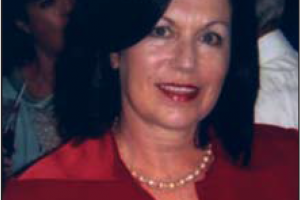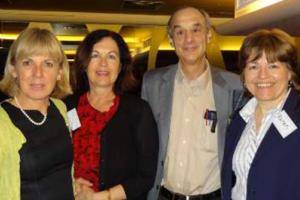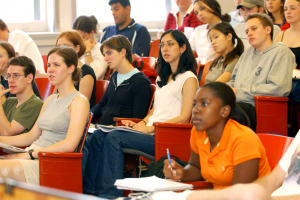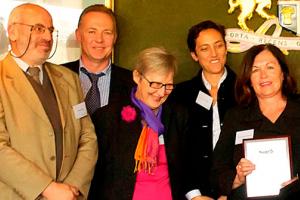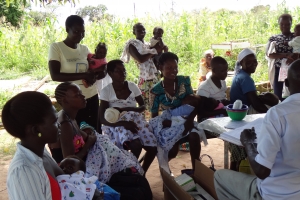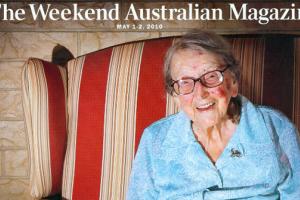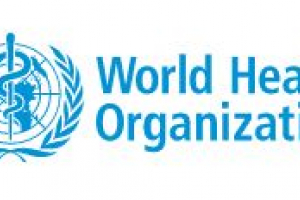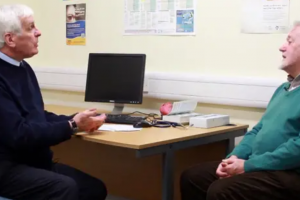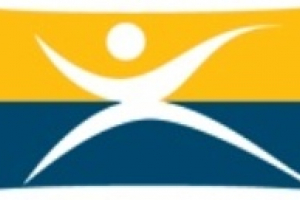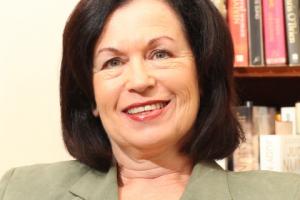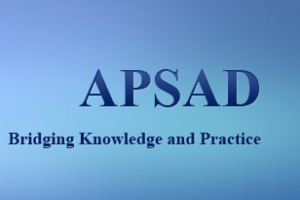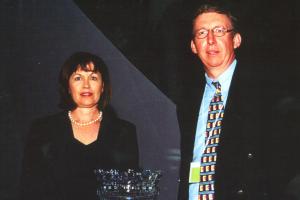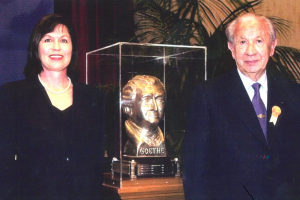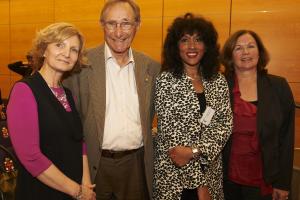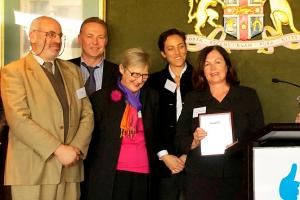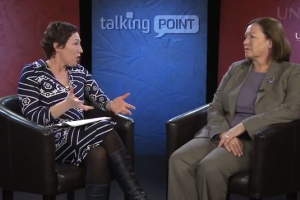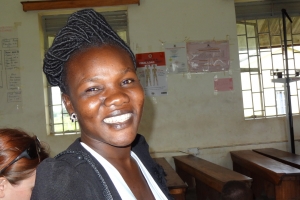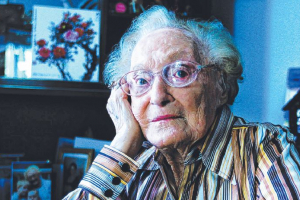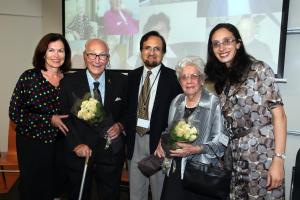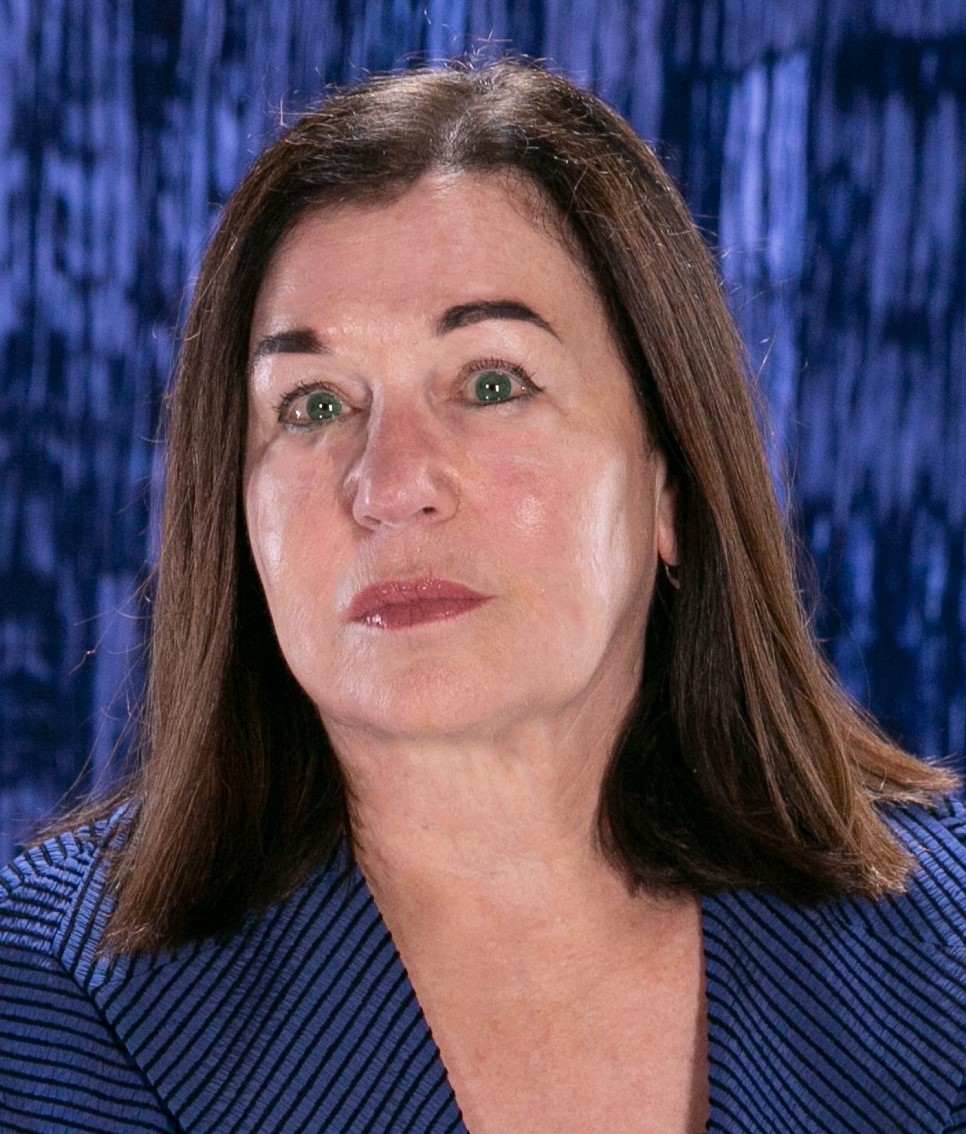
My Expertise
Smoking; smoking cessation interventions; alcohol use; alcohol interventions; preventive medicine; workplace non-smoking policies; smoking cessation in hospital clinics & workplace; general practice implementation of preventive medicine programs.
Keywords
Fields of Research (FoR)
Public Health and Health Services, Public Health and Health Services not elsewhere classified, Health Promotion, Preventive Medicine, Health Counselling, Primary Health Care, Mental Health, Aboriginal and Torres Strait Islander HealthSEO tags
Biography
Over many years Professor Emerita Robyn Richmond AM has been principal investigator of numerous research projects designed to reduce smoking prevalence and risky alcohol consumption in the Australian community. These research projects have been conducted in general practice, hospitals and hospital clinics, maternity services, medical schools, prisons, and in the workplace. She has been Chief Investigator on 13 NHMRC grants, including 4 as...view more
Over many years Professor Emerita Robyn Richmond AM has been principal investigator of numerous research projects designed to reduce smoking prevalence and risky alcohol consumption in the Australian community. These research projects have been conducted in general practice, hospitals and hospital clinics, maternity services, medical schools, prisons, and in the workplace. She has been Chief Investigator on 13 NHMRC grants, including 4 as Lead (CIA). She has carried out research over a long career and over the past 20 years, a major focus of her research work in tobacco has targeted disadvantaged and marginalised people with high risk lifestyle behaviours including: Indigenous persons, prison inmates and people with a mental illness. In the 2021 Queen's Birthday Honours List she was awarded the Medal (AM) in the General Division of the Order of Australia for her "significant service to tertiary medical education and to public health".
Over her long academic career she has trained more than 11,000 general practitioners and other health professionals, such as practice nurses and pharmacists, in Australia and globally to assist smokers to change their unhealthy lifestyle habits. Over 800 general practitioners in New Zealand, and medical practitioners in China, Turkey, France, Iran, Malaysia and Japan, were trained in Robyn Richmond’s smoking cessation techniques and they then implemented training programs for doctors in their own countries. Her training has led to systemic changes in the practice of medicine as GPs now engage in preventive practice.
She has worked across the globe training academics and implementing tobacco curricula in medical schools. She has provided education to medical students and postgraduate students in a range of public health topics. She worked for several years developing the revised undergraduate medicine program at UNSW.
She has worked in humanitarian health programs in sub-Saharan Africa including in Kenya and Uganda to improve health among vulnerable and high risk populations. This has involved working with the Faculty of Medicine at Gulu University in northern Uganda.
During Robyn's academic career, she has published over 300 peer reviewed publications in academic journals in public health, medicine and specialised journals, as well as 59 books, chapters and booklets. Her H-index is 58 and her academic publications have been cited over 11,500 times (Google Scholar). Over her career, she has attracted over $23million in research funding. She has authored or co-authored over 304 presentations at national and international conferences. She has taught at UNSW at undergraduate, postgraduate levels and trained health professionals across Australia. She has supervised research among medical students, Masters of Public Health and PhD students, and has developed training programs for health professionals. Since 2020, she has supervised 3 PhDs to completion and one masters research project, publishing 22 papers with research students.
She has demonstrated a significant service commitment to her discipline, University, Faculty of Medicine and School of Population Health, as a journal Editor for high quality journals in her discipline and provided service to community, non-government and government committees and Boards. She has worked on 13 expert committees developing guidelines and policies to reduce tobacco use, risky alcohol consumption and to improve research in tobacco and alcohol. Since its inception in 2002, she has been an invited member of the expert panel that develops smoking cessation guidelines for Australian general practice and other health professionals in partnership with the Royal Australian College of General Practitioners. These guidelines have been revised and updated 9 times, the most recent comprehensive revision was released in late 2019, and received a World Health Organization World No Tobacco Day award (Please see Awards section below). She also worked on the NSW Health Committee: Reducing the Harms of tobacco for mothers and babies, as well as the NSW Health Implementation Steering Committee and the Community of Practice Advisory Committee.
Over many years, she has participated in community engagement activities. Currently she is leading two large studies. One is a randomised controlled trial to reduce smoking among pregnant women attending 22 metropolitan, regional and rural maternity services including 10 Aboriginal Maternity and Infant Health Services across NSW and Qld. Second, she is co-leading another large study called Resilience For Women: reducing domestic and family violence among refugee and migrant women residing in South Western Sydney Local Health District and Western Sydney LHD. Working with colleagues she has raised substantial funding from 6 partner organisations and 21 associated health, social and legal services in these two LHDs. Her proposal seeking research funding was submitted to the NHMRC Partnership scheme.
She has worked in Uganda from 2016 to 2024. Since 2016 she has launched Community Outreach Health Clinics in northern Uganda collaborating with Deans of Medicine from Gulu University. This included: training of 50 midwives in cervical and breast cancer screening; launching a women’s health program in 5 health centres (over 3000 women screened); and supervising to completion two Ugandan academics from Gulu University in their PhDs, focussed on cervical cancer screening among women, and children’s oral health.
Professor Emerita Robyn Richmond’s academic research and leadership, education and major service commitments are:
RESEARCH
- Research and training in general practice to reduce smoking and risky alcohol consumption
- Research to reduce smoking among pregnant women
- Research to reduce domestic and family violence among refugee and migrant women
- Research to reduce smoking among those people with mental illness
- Research to reduce smoking among prisoners and ex-prisoners
- Research in the workplace to reduce tobacco use and heavy drinking
- Research to improve the health of women living in Uganda and Kenya
MEDICAL EDUCATION
- Service to Medical Education and vocational education:
- training doctors and other health professions in Australia and globally
- teaching undergraduate medical and postgraduate students
- training general practitioners and practice nurses.
SERVICE
- Service to her Discipline of Public Health
- Service as Editor of Academic Journals
- Service on Boards and Committees
- Service for the UNSW and Faculty of Medicine in her role as Associate Dean (postgraduate coursework), and Director of Research in the School of Population Health, UNSW Medicine and Health
- Service to non-government and government committees
- Service on international committees
- Service to Public Health through Translational Research
HUMANITARIAN WORK
- Humanitarian work to transform the health of sub-Sahara African communities in Uganda and Kenya
Research in health care settings
Robyn has led large projects across NSW in metropolitan, regional, rural and remote settings and health services. She has led, implemented and evaluated evidence-based and person-centred clinical quality improvement through engagement and co-design/re-design of clinical and public health innovations including training of health professionals in community settings:
- Australian general practices with GPs and nurses (reduction of smoking and risky alcohol)
- Maternity services in NSW and Queensland (smoking cessation)
- NSW prison health clinics with nurses and doctors (smoking cessation)
- occupational physicians and nurses in workplaces (alcohol, smoking, nutrition and exercise)
- drug and alcohol treatment services (alcohol, drugs and tobacco)
- nurses in north Ugandan health clinics in (breast cancer screening, cervical cancer screening and treatment)
- disadvantaged and vulnerable communities across NSW (CVD risk factors).
Her work involves extensive consultation with communities, patients and their families, service providers, health care workers and clinicians whose experiences and expertise are keystones to developing and implementing effective public health interventions and innovations.
Service to her Discipline of Public Health
She has been a member of the:
- Expert Panel: Revised Guidelines, Commonwealth Dept of Health and Ageing: 2004, 2007 (revised 2009), 2011, revised 2012 and 2014) and most recently revised, edited and published in 2020
- Expert Panel [7(2)]: Therapeutic Guidelines: Psychotropics: smoking cessation: 2012-2013
- Expert Panel: Evidence based guidelines for alcohol treatment for GPs, drug and alcohol workers, general hospital workers and consumers, Commonwealth Department of Health and Aged Care: 2002
- Expert Panel Research priorities for a national alcohol program, Commonwealth Dept of Health and Ageing: 2001
- NSW Research and Scientific Advisory Committee of the National Heart Foundation: 1999-2002.
Service as Editor of Academic Journals
- Deputy Editor and Tobacco Editor: Drug and Alcohol Review: 2003-2016
- Assistant Editor: Addiction: 2000-2012
Service on UNSW Boards and Committees
- Committee member: UNSW Faculty of Medicine Assessment Committee. 2016-2019
- Committee member: UNSW Faculty of Medicine Teaching and Learning Committee. 2016-2019
- Organising committee: 2nd UNSW Postgraduate Research Symposium. Where the marginal matters: strengthening transdisciplinary connections in postgraduate health research on sex, drugs and risk. 2015.
- Committee member: UNSW Faculty of Medicine Higher Degree Committee, representing the School of Public Health and Community Medicine. 2011-2016 and 1997-2009
- Chair of judging panel: Peter Baume Public Impact Award, School of Public Health and Community Medicine, University of New South Wales. 2010-2020
- Board member: School of Public Health and Community Medicine School Board. 2009-2020
- Committee member: School of Public Health and Community Medicine Operations Committee. 2008-2018
- Postgraduate Research Co-ordinator: School of Public Health and Community Medicine. 1997-2003
- Research Director: School of Public Health and Community Medicine Postgraduate Research Degree Programs. 2008-2016
- Board Member: Academic Board, University of New South Wales: 2002-2004
- Board Member: Research Committee of the Academic Board, UNSW: 2002-2004
- Board Member: Social Science Policy Research Centre, UNSW: 1990-1995
Service to the University of New South Wales and Faculty of Medicine in her role as Associate Dean (postgraduate coursework)
From mid 2016 until mid 2019, Robyn was appointed Associate Dean (postgraduate coursework) UNSW Faculty of Medicine, a senior leadership and management position. When she became Associate Dean, there were 8 Masters programs and 1696 postgraduate coursework students enrolled in Medicine. By the end of her tenure in 2019, there were 9 Masters programs and 2032 postgraduate students enrolled, a 20% increase in postgraduate students in three years. Robyn provided academic leadership of the postgraduate coursework students enrolled in the Masters programs offered by the Faculty of Medicine at UNSW, and represented the Faculty of Medicine on UNSW Academic Board Committees. She encouraged and facilitated Course Convenors to convert their postgraduate courses to include online delivery, which was serendipitous given the circumstances of Covid-19.
Prior to taking on this leadership service role, she served for 14 years in two separate terms as Director of the Postgraduate Research Degree Programs in the School of Public Health and Community Medicine (2008-2016 and 1997-2003). The program significantly developed and expanded during her tenure as she oversaw completion of Public Health postgraduate research degree students. In 2008, there were 124 students in the higher degree research programs (18 international students and 106 domestic students). However, by 2016 that number had grown to 187 postgraduate students studying research degrees (26 international students and 161 domestic students), an increase of 50% during her service in this position.
Her major service commitment also included representing the Faculty of Medicine on several committees which are held regularly and listed below.
- Academic Board Programs Committee
- Medicine Faculty Board Meeting
- Medicine Education Committee
- Medicine Inspired Learning Initiative Steering Committee Meeting
- Postgraduate Board meeting of the Masters of Women’s Health Medicine and Masters of Reproductive Medicine in the School of Women’s and Children’s Health
- Board meeting of Master of Science in Health Data Science
- School of Public Health Academic Program and Quality Committee
- School of Medical Science Master of Pharmaceutical Medicine Governance Committee Meeting
- Board meeting of Master of Forensic Mental Health in the School of Psychiatry
- Medicine Educational Developer and Associate Deans Meeting
- School of Public Health Executive Meeting
- School of Public Health Board Meeting
- School of Public Health Education Committee.
Service to non-government and government boards and committees
- Member: NSW Health Advisory Committee: Reducing Harms of Tobacco on mothers and babies. 2021-present
- Member: Expert Panel: Therapeutic Guidelines: Psychotropics: smoking cessation. 2012-2013
- Member: NSW Health Project Advisory Committee: Smoking in Pregnant Aboriginal Women: 2009-2012
- Member: The Australian Professional Society for Alcohol and Drugs (APSAD): 2004-2016
- Member: Alcohol and Other Drugs Council of Australia (ADCA): 2003-2012
- Member: Expert Panel: Evidence based guidelines for alcohol treatment for GPs, drug and alcohol workers, general hospital workers and consumers, Commonwealth Dept of Health and Aged Care: 2002
- Member: Expert Panel Research priorities for a national alcohol program, Commonwealth Dept of Health and Ageing: 2001
- Member: NSW Research and Scientific Advisory Committee of the National Heart Foundation: 1999-2002
- Member: Chronic Airflow Limitation Group, Australian Lung Foundation: 1997-2001
- Member: Expert Working Group: Developing the tobacco plan for the NSW Dept of Health and Quit for Life: 1994
- Member: Expert Panel on Development of guidelines for best clinical practice in evidence based smoking cessation. 1992
- Member: Expert Panel National Campaign Against Drug Abuse, Commonwealth Dept of Health, Housing and Community Services: 1990
Service on International Boards and Committees
- Member: Society for Research on Nicotine and Tobacco (SRNT): 1996-2020
- Member: Educating Medical and Nursing students Committee of the Union (IUATLD): 2010-2012
- Member: Global Network on Tobacco, SRNT: 2005-2015
- Member: Council on Epidemiology and Prevention of the American Heart Association: 2003.
- Member: World Health Organization Advisory Panel for Tobacco Action Plan:1998.
- Chair: International Committee: Community Health and Anti-Tuberculosis Association (CHATA) now the Respiratory Institute: 1995-2005
- Board Member: Community Health and Anti-Tuberculosis Association (CHATA) now the Respiratory Institute: 1994-2005
- Member: International Union Against Tobacco and Lung Diseases (IUATLD): 1991-2020
- Member: Tobacco or Health Scientific Committee, Tobacco Prevention Section, International Union Against Tuberculosis and Lung Disease, Paris: 1991-1994
- Tobacco Prevention Section (TPS) of the IUATLD: from 1991-1999 Robyn was Australia’s representative on the TPS, elected Deputy Chair from 1994 and elected Chair of the TPS from 1997-1999.
My Grants
Professor Emerita Robyn Richmond AM has received research funding grants over her career totalling over $23million (including over $13million Category 1 funding) from a range of funding sources such as the Heart Foundation, the National Health and Medical Research Council, the Commonwealth Department of Health, the NSW Ministry of Health, and from industry.
My Qualifications
MA University of Sydney (1980)
PhD University of New South Wales (1984)
MHEd University of New South Wales (2004)
DSc University of New South Wales (2016)
My Awards
Professor Emerita Robyn Richmond’s work has been recognised by numerous awards and distinctions by her scientific and public health peers for her eminent career in research and translation of research findings into practice, policy, mentoring and education for the benefit of Australians. These prestigious honours are testimonies to the high esteem and standing she is held by her peers and health organisations. She has received awards for the range of her translational public health work including awards for leadership in research, outstanding public health teaching and training, and for her wide-ranging community and public health activities. Her work has led to significant improvements in the nation’s health through raising awareness of risk factors and providing interventions to change behaviour, in particular, her smoking cessation translational research. The following is a list of 21 awards and distinctions she has won which includes links for further information with accompanying photos.
- Robyn Richmond was awarded the Medal (AM) in the General Division of the Order of Australia for her "significant service to tertiary medical education and to public health" in the 2021 Queen's Birthday Honours List. Her achievements in public health span 40 years and are ongoing. She is a leader and innovator of public health programs particularly among vulnerable and marginalised smokers in the Australian community and among people in low income countries who are at high risk for adverse health outcomes. Her work has had a significant positive impact on the health of Australians and in the international arena. She has contributed to the development of national and international policies and guidelines for evidence based best practice for smokers and has advocated for greater community awareness of health issues through her longstanding training of general practitioners and other health professionals across Australia.
- A World Health Organization World No Tobacco Day award in 2020, which recognises individuals or organisations for their tobacco control activities was awarded to the Royal Australian College of General Practitioners (RACGP). The RACGP was selected for their outstanding work in tobacco control to receive one of six awarded in the Western Pacific Region. The major component of the RACGP's tobacco control work is their sponsorship of the Australian Smoking Cessation Guidelines since 2002. Despite significant reductions in smoking, since 2013 smoking rates have plateaued and tobacco smoking remains the leading preventable cause of death and disease in Australia. Emerita Professor Robyn Richmond has worked with the Expert Advisory Group of smoking cessation researchers that has written and the guidelines for health professionals since its inception in 2002. Robyn is second author to the Chair, Professor Nicholas Zwar, a position which reflects her expertise and contribution to the Guidelines. Since 2002, the expert advisory group has produced 7 editions and revisions of the smoking cessation guidelines, the most recent of which was in January 2020.
- The Public Health Association Mentor of the Year Award 2012 (September 2012) is made to a senior member of the Public Health Association of Australia (PHAA) who has made a significant contribution to mentoring early-career professionals/practitioners/students. The award acknowledges a public health professional who has demonstrated outstanding dedication to mentoring students/early career professionals/practitioners. Its purpose is to formally acknowledge the importance of mentoring in career development and in recognition of the time commitments and other sacrifices that are involved for mentors. Mentoring plays an important role in developing proficiency and increases capacity, an important object of the PHAA. The award recognises the significance of mentoring in promoting excellence in research, education, professional and personal development, in building capacity in public health practice, in providing career development opportunities, in advancing knowledge and potential for improvement of population health, in respect of time commitments and other sacrifices made by the mentor and in encouragement of service to PHAA. Please see the Globe newsletter (Dec 2012) from the UNSW School of Public Health and Community Medicine.
- The Mental Health Award for Research and Evaluation was awarded to the UNSW Prison Research Team led by Professor Richmond for research among prisoners in NSW and QLD prisons to reduce tobacco use (October, 2011). “The winners have demonstrated a significant contribution to the knowledge base and understanding of mental health issues, the relevance of their work to current service delivery, and have demonstrated their plans for sharing their findings.” The award plaque and prize were presented by the Minister for Mental Health, the Hon. Kevin Humphries, MP. Please see the Globe newsletter (Dec 2011) from the UNSW School of Public Health and Community Medicine.
- National Drug and Alcohol Honour Roll (June, 2011) Professor Robyn Richmond was inducted into the prestigious Honour Roll of Fame at the National Drug and Alcohol Association "The Honour Roll acknowledges and publicly recognises the exceptional work done by people who have worked tirelessly over a number of years in this sector". Please see the Globe newsletter (Sept 2011) from the UNSW School of Public Health and Community Medicine.
- Public Health Impact Award 2011 recognises “outstanding contributions to a public health issue by a dedicated public health professional working to improve the health of the population and reduce health inequalities”. (Received July 2011) The prestigious PHIA awarded to Robyn Richmond "recognises health professionals who have made a significant impact on an important public health issue in Australia, particularly in NSW; who have developed innovative solutions to problems; demonstrated a high degree of excellence; overcome substantial barriers in the design, implementation or evaluation of a program of work; communicated their efforts so others may benefit; generated public and/or professional enthusiasm and support for a public health initiative; and who have promoted the concept of public health". Please see the Globe newsletter (Sept 2011) from the UNSW School of Public Health and Community Medicine.
- Senior Scientist Award from the Australian Professional Society for Alcohol and Drugs (APSAD) for “outstanding contribution to research and practice”. The Australian Professional Society for Alcohol and Drugs is the eminent national organisation catering to the professional interests of the drug and alcohol workers in Australasia. The membership of APSAD is drawn from such diverse specialties such as practitioners, educators, policy specialists and academics. "The APSAD Senior Scientist award is for excellence in science and research and designed to provide peer recognition for those working in the drug and alcohol field in Australasia". The award was presented to Robyn Richmond at the APSAD Conference in Darwin, November, 2009. Please see the Globe newsletter (Dec 2009) from the UNSW School of Public Health and Community Medicine.
- The Mental Health Award for Research and Evaluation “recognises individuals or organisations that have completed groundbreaking mental health related research studies, programs or initiatives, and whose findings have significant implications for the mental health field” (received October, 2009). The award was presented to Robyn Richmond by the Governor of NSW, Professor Marie Bashir on 7 October, 2009. The collaborators with Robyn Richmond for this award were Professor A Baker and Dr F Kay-Lambkin. Please see the Globe newsletter (Dec 2009) from the UNSW School of Public Health and Community Medicine.
- The UNSW Research Showcase Award for best presentation for the Australian Centenarian Study. Positive Ageing: How to live to 100 years by Robyn Richmond and Frances Kay-Lambkin. August, 2009. Please see the Globe newsletter (Dec 2009) from the UNSW School of Public Health and Community Medicine.
- Peter Baume Award was awarded to Robyn Richmond in May 2009 for “significant international impact and career achievement in public health”. Please see the Globe newsletter (June 2009) from the UNSW School of Public Health and Community Medicine.
- Victorian Public Healthcare Awards - Highly Commended - Strengthening the capacity of individuals, families and communities through effective prevention and health promotion. The Healthy Lifestyles Project (2008).
- Victorian Public Healthcare Awards - Highly Commended - Premier's Award for Excellence in tackling chronic disease and improving public health. The Healthy Lifestyles Project (2008).
- National Institute of Clinical Studies Evidence into Action Award is awarded for the paper or poster that best demonstrates improving health care by closing an identified gap between the available evidence and clinical practice, within Australian health care settings. The poster presentation: The Healthy Lifestyles Project among women with psychosis (Baker, A., Richmond, R., et al) won this award at the 3rd International Congress on Women's Mental Health, March, 2008.
- 2006 Schizophrenia Research Institute Research Paper Award. In recognition of publication of a high profile study in schizophrenia research (in a peer-reviewed journal with an impact factor greater than 7) awarded to Baker, A., Richmond, R., et al (2006). A randomised controlled trial of a smoking cessation intervention among people with a psychotic disorder. American Journal of Psychiatry, 163, 1934-1942.
- The President’s Award of the Thoracic Society is given each year by the President of the Thoracic Society of Australia and New Zealand “in recognition of outstanding effort, leadership and achievement in combating the use of tobacco”. Robyn Richmond was nominated for this award by Professor Matthew Peters, Head of Respiratory Medicine at Concord Hospital. The award was presented to Robyn Richmond during the Opening Ceremony of the Annual Scientific Meeting in Brisbane in March 2001.
- The Goethe Endowment for Non-Smoking Committee in Germany, in conjunction with the German Medical Society, awarded Robyn Richmond the Goethe Challenge Trophy. She was awarded the Trophy “for exemplary activities in tobacco control and extraordinary contributions in the fight against tobacco”; for “the outstanding leadership of Professor Robyn Richmond in anti-smoking activities and excellence in promoting a smoke-free environment especially among health care professionals and who has actively promoted research and teaching that have benefited people near and far” and “for excellence in promoting a smoke-free environment, especially among health care professionals, thus making an example for society at large”. She was awarded the International Goethe Challenge Trophy for 2000-2001 for her work in research into smoking cessation in various community contexts; such as research into teaching medical students and physicians about smoking; workplace initiatives in smoking cessation; non smoking policy formation; and development of smoking cessation clinics at hospitals.
- Awarded the Sir Anthony Mason Fellowship in 1996 for “researchers of note” to conduct research in Asian countries collaborating with the University of New South Wales.
- Australian Hospital Association's National Community Outreach Award in 1996 for the “Health is Gold” project among the Vietnamese community in the South Western Sydney Area Health Service, in which she contributed to training GPs in the Smokescreen program and advised on development of the Smokescreen resources.
- The Smokescreen video won a national Australian award at the Australian Corporate, Educational and Training Video Awards in 1991. It was also nominated as a finalist in the Festival of Health Promotion Films in San Francisco in 1992. Parts of the Smokescreen video were incorporated in the World Health Organization video made for health professionals which was distributed widely to 96 countries to mark World No Tobacco Day in 1995.
- Australian Hospital Association's National Community Outreach Award in 1987 for the Smokescreen Program was presented to Robyn Richmond.
- World Health Organization Nomination in 1986. The Commonwealth Department of Health nominated the Smokescreen GP program as Australia's representative for the World Health Organization's Sasakawa Health Prize. The prize was for "outstanding and innovative work in health development, promotion of health programmes and notable advances in primary health care, in order to encourage the future development of such work" (Dr. H. Mahler, Director-General, WHO).
My Research Activities
For many years Professor Emerita Robyn Richmond AM has been an innovator and leader in scientific research in public health particularly in the areas of smoking cessation in general practice and among high risk groups, and in introducing curricula on tobacco control in medical schools globally. She has carried out public health research to reduce smoking prevalence and risky alcohol consumption in numerous settings including general practice, prisons, hospitals and hospital clinics, community health services, workplaces and in medical schools. Over the last 20 years, a major focus of her research work in tobacco has targeted disadvantaged and marginalised people with high risk lifestyle behaviours including: Indigenous persons, prison inmates and people with a mental illness. She has opened up new fields of research in public health for cardiovascular risk factors, whilst significantly advancing existing areas of research focus such as smoking cessation and reduction of risky alcohol consumption. She has embarked on a new area of research in public health – positive ageing, with a focus on centenarians’ health and lifestyles and more recently, she initiated an entirely new area of community research as an investigator into the health of vulnerable people living in displaced persons’ camps in Kenya and Uganda.
Her studies are mainly randomised controlled trials which take around five to eight years to complete and include long term follow up assessments. Her studies are characterised by a building of research themes over years. One example is her series of studies to reduce smoking and risky alcohol consumption among patients attending their family doctor. Her findings have been the cornerstone of brief interventions for smoking and alcohol in general practice in Australia. Her training of over 11,000 GPs and other health professionals across Australia has led to changes in practice of medicine as GPs now engage in preventive practice.
The main areas of her scientific research in public health over her career include:
- Smoking cessation among patients attending their general practitioner
- Smoking cessation among pregnant women attending maternity services in NSW and Queensland
- Improvement of health and lifestyles and reduction of cardiovascular risk factors (smoking, risky drinking, overweight, poor nutrition and lack of physical activity) among high risk groups such as Indigenous people, and among disadvantaged populations, such as those with a mental illness and prisoners
- Reduction of smoking and other lifestyle habits among workforce populations – an opportunity to reach young males who do not frequently visit the family doctor
- Evaluation of the use of a range of pharmacotherapies to assist smokers to quit (nicotine gum, nicotine patch, bupropion, nortriptyline and varenicline) to increase scientific knowledge of anti-smoking medications
- Dissemination and evaluation of teaching curricula on tobacco control and smoking cessation in medical and nursing schools globally which includes training of teachers and academics
- Reduction of smoking and risky alcohol consumption among people attending hospital outpatient clinics
- Reduction of risky alcohol consumption among patients attending their general practitioner
- Investigation of centenarian health and lifestyles as examples of positive ageing
- Investigation of the health needs of people living in displaced persons camps in Kenya
- Evaluation of intimate partner violence among women in northern Uganda
- Evaluation of cervical and breast cancer among women in northern Uganda.
Professor Emerita Robyn Richmond’s public health research is the first to:
- Show the general practitioner has an important role in helping smokers to quit tobacco use and risky alcohol drinkers to moderate alcohol use
- Demonstrate that the workplace is a significant context to deliver healthy lifestyle interventions
- Illustrate that people with severe mental illness can improve their cardiac health with comprehensive healthy lifestyle programs
- Illuminate the importance of the prison system, which contains high proportions of Indigenous people, those with a mental illness and drug users, as a setting to assist smokers to quit tobacco use
- Show that centenarians are the fastest growing age segment in Australia and to identify the predictors of living a long life
- Demonstrate that teaching medical students about tobacco can improve knowledge about tobacco control and smoking cessation techniques on a global scale
- Report on the effects of counselling to reduce heavy alcohol consumption among patients in hospital wards, and to identify patients entering emergency wards with alcohol related problems.
Please see icons below for more information.
My Research Supervision
Supervision keywords
My Teaching
Robyn Richmond has been an educator for over 35 years and her longstanding service to education has led to transformations in public health
1. Service to medical education
Since the early 1980s Robyn Richmond has been actively involved in curriculum development in medical schools on teaching medical students about tobacco control and smoking cessation techniques and on alcohol misuse and interventions to moderate alcohol consumption, as well as training doctors about how to assist smoking patients to quit tobacco use and to control alcohol misuse.
Robyn Richmond’s pioneering research work on the importance of general practitioners in reducing smoking, and their lack of knowledge and training when she commenced work in this area, triggered a commitment to introduce smoking cessation and tobacco education and alcohol misuse into medical schools’ curricula. She surmised that providing teaching about tobacco and alcohol in medical schools would ensure that future doctors are adequately trained to encourage their patients to quit tobacco use and control over consumption of alcohol.
Undergraduate medical school curriculum at UNSW
Teaching on Preventive strategies
When Robyn Richmond commenced teaching at UNSW in the 1980s, there was no teaching at all on prevention initiatives in the undergraduate medical program. In response to this, she initiated and implemented the teaching of preventive strategies for medical students. She commenced by offering medical students optional lunchtime seminars about prevention on a range of public health topics. These became so popular that a teaching stream on prevention was developed and introduced by Robyn into the medical curriculum. Robyn Richmond can be credited with developing teaching curricula on preventive activities and incorporating it into the undergraduate medical program at UNSW. She taught preventive strategies to Years 1 and 2 medical students in the Health Maintenance course at UNSW from the early 1980s until 2016.
During this time as part of her Preventive Strategies teaching, she organised an innovative Health Fest Community Day in which she invited over 30 community organisations to UNSW to display stand and present to the medical students about their community preventive activities, some of which included components and resources from Robyn Richmond’s research. Some of the participating community organisations include: the National Heart Foundation, Cancer Council, Australian Red Cross, Australian Kidney Foundation, Australian Breastfeeding Association, Asthma Foundation, Diabetes Australia, Hepatitis C Council, Mental Health Association Australia, NSW Mental Health and Drug & Alcohol Office and the Fred Hollows Association. Some of these organisations used Robyn Richmond's health resources in their health promotion activities (e.g. Australian Navy).
Teaching on the role of the doctor in smoking and alcohol
For more than 20 years, Robyn Richmond has developed and taught medical students on the role of the doctor in smoking cessation and harmful alcohol consumption. She developed a session for medical students on Motivational Interviewing and the role of the doctor in reducing patients’ risky alcohol use which has sustained for 20 years. Robyn invites alcohol and drug clinicians and researchers working in hospitals and drug and alcohol treatment clinics to participate in the teaching of this program. In this way, they provide rich and interesting examples from their own clinical work and this teaching is popular with medical students.
Introducing teaching on public health into clinical disciplines
Introducing public health into clinical disciplines is an innovation in teaching and learning and is a example of significant contribution to medical education.
Designing and teaching in the Health Maintenance course
Robyn Richmond was a member of the Learning Activity Design and Implementation group focussing on designing the Health Maintenance course delivered annually to 570 medical students in years 1 and 2 of the UNSW undergraduate medical course. She was responsible for the introduction of teaching on alcohol, tobacco and illicit drugs, and nutrition in the undergraduate medical program. Over 20 years she has made a major contribution to the development of innovative learning and teaching activities in public health topics.
Medical school curricula in medical schools globally
“Most of the world’s more than one billion smokers – about a quarter of all adults – are addicted. Many want to quit, but few get the help they need. Services to treat tobacco dependence are fully available in only nine countries, with 5% of the world’s population. Countries must establish programs providing low-cost, effective interventions for tobacco users who want to escape their addiction“.
Dr Margaret Chan, Director-General, World Health Organization, 2008.
For more than 25 years, Robyn Richmond has worked to address the negative effects of tobacco use across the globe through introduction of tobacco curricula in medical schools.
She believes that training future medical practitioners is a powerful tool leading to a reduction of tobacco use and a concomitant improvement in the health of populations. Robyn Richmond’s teaching is based on her research and has been introduced into curricula in medical schools globally. This has involved carrying out a range of public health activities including development and evaluation of uptake of tobacco curricula, identifying and training key people to champion teaching about tobacco, and dissemination of tobacco curricula to medical schools worldwide. She developed a model of implementation of health promotion for different countries and published a paper on her model in Respirology based on her experience working in medical schools in China.
One focus of Robyn Richmond’s global public health work has been to collaborate in joint partnerships to disseminate tobacco curricula and resource materials in low-middle income countries working in collaboration with Professor Harry Lando (Chicago, US) and other members of the Global Network on Health, a group within the Society for Research into Nicotine and Tobacco (SRNT). For example:
Germany
As part of Robyn Richmond’s program of work for the Tobacco Prevention Section, IUATLD, she was invited to run a workshop on educating medical students at the 27th Global Conference on Lung Health held in Mainz, Germany in 1994. The workshop participants were predominantly academics and respiratory physicians from medical schools in Europe and they discussed successes and barriers encountered when implementing tobacco curricula in medical schools.
Turkey
Robyn Richmond was invited by the University of Masmara, Turkey and the Turkish Thoracic Society to conduct two workshops in Istanbul in 1996. They translated both the tobacco curriculum in the handbook for teachers and the resources for students into Turkish, and the Turkish Thoracic Society sponsored the publication of the Turkish version of the handbook. Tobacco curriculum training workshops for Turkish medical school academics were attended by academics from most of the 37 medical schools across Turkey.
China
In 1998 Robyn Richmond received a short-term consultancy from the World Health Organization to develop and trial teaching resources for teachers and students in medical schools in China. Robyn Richmond developed and disseminated the tobacco training program in a series of workshops for academics working in medical schools in the north of China (Beijing), and in the south of China (Chan Chung). There were 85 academic doctors from Chinese medical schools who participated in the training workshops and more than 100 medical students attended lectures. Four months after the training workshops, half of the Chinese medical schools said they had introduced Robyn Richmond’s tobacco control curriculum into their medical schools. An important impact of the training program in China was that Shanghai Medical University incorporated the Smokescreen education program into the Year V medical program textbook called Jiankang Jiaoyuxue.
In 2007 Robyn Richmond was asked by the Commonwealth Department of Health and Ageing to run a smoking cessation training course for Chinese medical academic physicians visiting Australia. She developed and ran a 10-day Smokescreen Education Program training course. The participants returned to China to train medical school clinicians and academics.
Thailand
Robyn Richmond was invited by the IUATLD to conduct a training workshop at the 29th World Conference of the IUATLD and Global Congress on Lung Health in Thailand in 1998. Medical school academics from all over the world attended this workshop which resulted in her medical school curriculum being translated and implemented in medical schools across the globe.
France and Cambodia
A respiratory physician from the Pitie Salpetriere Hospital in Paris who attended the IUATLD training in Thailand presented the Smokescreen Education program to the French Ministry of Health and received support and funding to translate and implement the program across France and French speaking medical schools in Cambodia.
Iran
Robyn Richmond worked with an Iranian physician to translate the tobacco curricula and the accompanying resources into Farsi for Iranian medical schools in. The teaching program was implemented into the Iranian medical course and evaluation showed an almost fourfold from increase in knowledge about tobacco among Iranian medical students
Laos
The Smokescreen Education program was translated and academics in medical and nursing schools implemented the program into Lao medical schools. 2,242 medical and nursing students were taught about tobacco in 9 out of 11 medical and nursing schools throughout Laos.
Other translations
Robyn Richmond has worked with other academics in countries around the world advising on translations and dissemination of her tobacco curricula resources such as:
• Academics from Kuwait University introduced Robyn Richmond’s tobacco curriculum into medical schools across the Arab Gulf States
• Italy
• Romania
• Japan
• Spain.
The process of dissemination into medical schools included training a key person either in a workshop (e.g., for French and Romanian respiratory physicians), or by visiting their country and conducting the training course for academics in local medical schools (e.g., in Turkey, Thailand, China and Germany), or training the medical school academics in Australia (e.g., from Japan, Laos and Malaysia). The tobacco curriculum has been introduced into many medical schools across the globe. The stages of this public health initiative consist of a needs assessment through to resource development, training, dissemination, evaluation and revision.
This service to medical education shows sustained global impact of Robyn Richmond’s tobacco control work in medical schools.
China, Indonesia, India and Bangladesh
In December 2011, Deans and Professors from medical and nursing schools from Bangladesh, China, India and Indonesia were invited to a 3-day workshop in Singapore where they were trained in smoking cessation medical curricula by Professor Robyn Richmond, Professor Harry Lando (USA) and colleagues from the International Union who organised this workshop.
Postgraduate education
Robyn Richmond has developed six courses in the Master of Public Health (MPH) program at UNSW including: Research Skills in Public Health, Applied Epidemiology, International Tobacco Control, Centenarian Health and Lifestyles, Vulnerable People in Kenya and Tobacco, Alcohol and Illicit Drugs. She regularly supervises students for small and medium sized research projects and develops their capacity as independent researchers.
Tobacco, Alcohol and Illicit Drugs course
In 2010 Robyn Richmond expanded her Tobacco Control course from a 3 credit unit course to a 6 credit unit course called: Tobacco, Alcohol and Illicit Drugs. She designed, coordinates and teaches this course in the Master of Public Health (MPH) program and includes numerous innovative teaching methods which are highly rated by the students. Course materials are evidence based and linked to the latest research. This course is popular among doctors, nurses and psychologists and both local and international students participate. Comments from students include:
• Her teaching sessions are so interactive that I have not seen such a hardworking professor like her, in all the seminars, her participation made every seminar even more informative. And especially when she asks us to apply it to our home country.
• All her course is mind blowing.
• She was very helpful in regards to providing material and resources and information.
• She has a very well structured way of teaching.
• She encourages critical thinking as well as independent learning with many learning activities.
• She has complete trust in her students and provided a lot of helpful material.
• Her lectures are very exciting.
• She has very sound knowledge into the course and the field in general, engaged students to think and encouraged participation.
Research Skills in Public Health course
Previously, she developed and ran a core MPH course, Research Skills in Public Health. As part of this course, students were attached to various public health research projects in the community which afforded them practical and hands on experience of public health research and encouraged them to pursue research in public health areas. This was a seminal course which has developed into other courses in the MPH program.
Health Needs of Vulnerable People Living in an Internally Displaced Persons’ Camps in Kenya
In 2012 and 2013, Robyn Richmond developed a unique offering within the UNSW Public Health masters program which offered the opportunity for overseas data collection. Students spent 1-2 weeks in Kenya where they collected data on the health needs of people living in Internally Displaced Persons’ Camps. This innovative project offered students a chance to observe and participate in a major public health activity in a resource poor country. It provided a rich learning experience where students gained experience in a range of research methods including the complexities of conducting research in a resource poor setting.
Supervision of postgraduate coursework research students
Emerita Professor Robyn Richmond regularly supervises postgraduate coursework students in small and medium sized research projects. She has supervised many students as part of her various research projects in general practice, smoking among prisoners and ex-prisoners, smoking among those with a mental illness, centenarians, and research in Kenya and Uganda. This type of supervision is a capacity building exercise and enables students to pursue further higher research degrees.
2. Service to education of health professionals
Training health professionals in smoking cessation in Australia: doctors, nurses and pharmacists
Robyn Richmond’s Smokescreen smoking cessation program translation was developed as a part of her research but was translated into use in general practice as a service to health professionals and to public health. The program continued to be refined and developed as a result of evaluations in practice among general practitioners.
Training and evaluation of its effectiveness among general practitioners
Robyn Richmond and her colleagues, Professor Nicholas Zwar and Associate Professor Colin Mendelsohn trained around 11,000 GPs across Australia in the Smokescreen smoking cessation intervention. Training in workshops commenced nationally in 1986 and was carried out predominantly on a voluntary basis during evenings or on weekends.
Robyn Richmond evaluated utilisation of the smoking treatment program among 198 GPs and found that 88% of GPs who had been trained in her Smokescreen smoking cessation program were using it six months following their training workshop. This percent extrapolates to 9,680 of the 11,000 GPs trained in the Smokescreen cessation treatment program who continued to use the intervention program with their smoking patients. This would have been almost half of the 20,000 GPs working in Australia in 1991 at the time the study was conducted (GP Workforce Statistics: 1984-85 to 2013-14), who were using her smoking cessation treatment program at least 6 months after training.
Among the general population, 80% of people visit their GP at least once a year, and smokers usually visit their GP more than once. In 1990 over 3.5 million Australians were smokers, and 2.8 million of these smokers would have visited their GP at least once during the year. Since almost half of all GPs (9,680) would have been using the Smokescreen smoking cessation program with their patients on a regular basis, it can be surmised that around 1.4 million smokers would have been assisted to quit smoking as a result of visiting a GP trained in Robyn Richmond’s Smokescreen team. This reveals the significant public health impact of her work among GPs to reduce smoking among patients. Further, this also demonstrated that GPs can play an important role in assisting smokers to quit and resulted in a systemic shift in the practice of general practitioners.
Training nurses
The training program Robyn Richmond developed for GPs to use with smoking patients was translated for other health professionals such as practice nurses. Over the past 15 years and ongoing, she has trained nurses in evidence based smoking cessation interventions. Working with co-investigator Professor Nicholas Zwar, now Executive Dean, Health Sciences & Medicine, Bond University, their latest venture is to train practice nurses working in general practice to deliver brief smoking advice.
Training pharmacists
Based on the national training program implemented among general practitioners, a program was launched in May 2000 as a quitting event for World No Tobacco Day. This was the Smokescreen for Pharmacy Program, a national program in which resources were developed for use by pharmacists with smokers. The program was launched in a national broadcast with Robyn Richmond, Nick Zwar and two pharmacists as the expert panel. In this initiative, more than 2500 pharmacists were trained around Australia.
Training medical practitioners in smoking cessation globally
Robyn Richmond has promoted global health by training doctors from other countries in smoking cessation treatments thus enabling them to adapt and implement the Smokescreen training program among doctors in their own countries. This service to the international community has been recognised by numerous awards.
New Zealand
Robyn Richmond was invited by Christchurch School of Medicine to implement her Smokescreen training program in various hospital services and into general practices in New Zealand and 35% of all GPs in New Zealand were trained in the Smokescreen program. During the initial six months there were 25 training workshops in the use of the smoking cessation method with around 800 New Zealand health professionals attending including general practitioners, practice nurses, respiratory physicians and respiratory nurse educators working in hospitals.
The Smokescreen initiative was regarded so highly that the Canterbury Health and Pegasus Medical Group in New Zealand created a full-time Smokescreen trainer who maintained ongoing liaison with general practitioners and practice nurses, as well as in the hospital system where she trained doctors and nurses to use the Smokescreen intervention. Smokescreen resource kits were available on the respiratory, cardiac, general medicine, diabetes and peripheral vascular wards and patients were advised to quit.
The New Zealand model of implementation of Smokescreen was different to that in Australia but was also very effective, with integration of the smoking cessation service across different medical specialties. According to physicians “it has changed hospital practice” in Canterbury and family practice in the south island of New Zealand. The Smokescreen project was recognised as a “major force behind better integration between hospital and general practice services” in the Canterbury area. In the north island, a position was created by the Independent Practitioners Association based in Auckland for teaching Smokescreen to GPs. Nurses from the coronary care unit attended Smokescreen training workshops and implemented the program.
The New Zealand doctors participating in the Smokescreen program in New Zealand said that the program was “enthusiastically received in primary care” and it had a positive effect on reducing smoking rates among New Zealanders. Independent New Zealand follow-ups found that an acculturatised version of the Smokescreen program was widely used and helped one third of enrolled patients to remain non-smokers six months after treatment to reduce tobacco use. The results in New Zealand indicated the important role of the general practitioner in smoking cessation.
China
Robyn Richmond was invited by the (then) Scientific Director of The Union (IUATLD), in 1995 to join a 10-day international delegation to work in China. The Department of Health in Beijing invited doctors to the training workshops and attended and participated in the workshops. Chinese doctors were introduced to the range of anti-smoking techniques available. Various Smokescreen resources were translated into Mandarin, such as the book: Become a Non-Smoker, and the pamphlets for patients: Women and smoking: The choice is yours, Smokers, you have a right to know, Smoking: the choice is yours, Taking action to stop smoking and Self-help for smokers.
Additionally, as part of her WHO consultancy work in China in 1998, Robyn Richmond conducted workshops in smoking cessation methods for medical practitioners working in Beijing.
In 2007, Robyn Richmond was asked by the Commonwealth Department of Health and Ageing to run a training course in smoking cessation for doctors visiting Australia from various parts of China. She developed and ran a 10-day training course at UNSW. The participants were trained in the Smokescreen Education Program which they took back with them to train medical school clinicians and academics.
Hong Kong
The Smokescreen program was implemented in a clinic in Hong Kong, at a time when smoking cessation programs were rare. This first evaluation of the Smokescreen smoking cessation program in Asia showed that the service was acceptable to Chinese smokers. The Chinese quit rate was comparable to Western clinics. The study concluded that a part-time smoking cessation clinic is a promising model for piloting smoking cessation services in the East.
Turkey
When Robyn was Chair of the International Union Against Tuberculosis and Lung Disease Tobacco Prevention Section, she worked with colleagues to run workshops in Masmara University Turkey on the Smokescreen program. They translated the handbook and resources into Turkish. Over 100 Turkish doctors were trained in the Smokescreen Program for GPs. The Turkish Thoracic Society sponsored the publication of the Turkish version of the handbook.
France
Following the training workshop Robyn Richmond ran for respiratory physicians at an IUALTD conference, the Director of the Department of Pulmonology at the Pitie-Salpetriere Hospital in Paris, selected the Smokescreen program as the basis of his Nicomède program for dissemination among family doctors in France. The Smokescreen program was translated and adapted and training resources were produced. The Smokescreen GP program was combined with the Smokescreen Education program that Robyn Richmond had developed for medical students. The combined program was presented to the French Ministry of Health and received their support and funding. The French Ministry of Health launched the GP training program on 31 May 1999, World No Tobacco Day, which focused on smoking cessation.
During 1999-2000, one physician educator from each of the 125 administrative areas in France was educated and then they, in turn, trained 25 GPs in their areas. Over the ensuing years, more than 10,000 physicians and nurses received education in the Nicomède Program. The program was also introduced among 3000 French cardiologists, nurses in hospitals and physicians in the workplace, as well as into pregnancy units and 250 alcohol centres across France.
The Pitie-Salpetriere Hospital evaluation to Professor Richmond was positive: “The French evolution of the Smokescreen program had in hand a lot of chance to be a success”. During the first year, the Smokescreen Program was implemented in general practice, in alcohol centres, among occupational physicians, healthcare workers in hospitals, obstetric clinics and was used to educated medical students and nurses and it became “very popular”.
Iran
An Iranian physician who met Robyn Richmond when she was chair of the Tobacco Prevention Section of the IUATLD attended her training workshop in the Smokescreen program. He incorporated the training program into the continuing medical education programs for Iranian physicians.
Malaysia
A Malaysian primary care physician translated the Smokescreen GP program materials into Malaysian when studying his Master of Public Health at the University of New South Wales under Robyn Richmond’s supervision. He returned to Malaysia with the program and actively trained GPs in the Malaysian Smokescreen program.
Japan
A Japanese endocrinologist was trained in the Smokescreen GP program when she came to Sydney for a sabbatical with Robyn Richmond, and she translated the program and introduced it into Nara, Japan.
